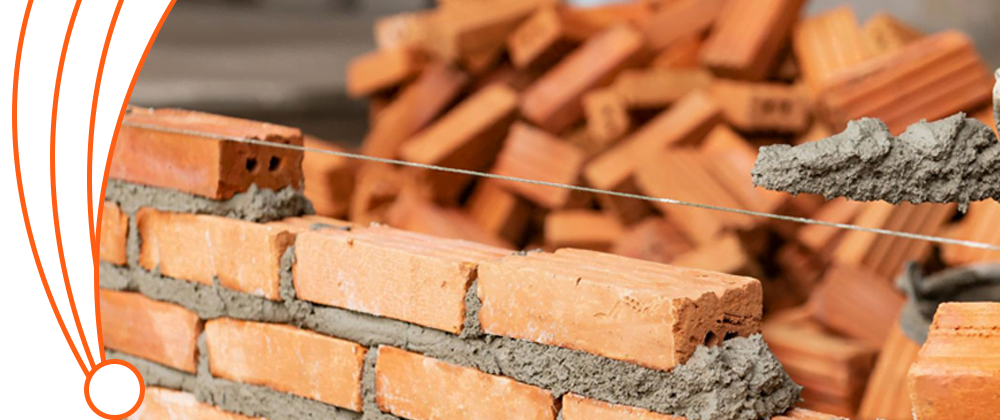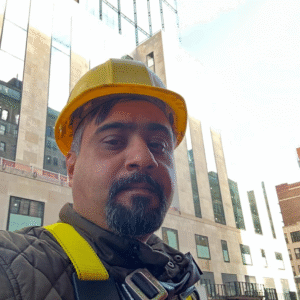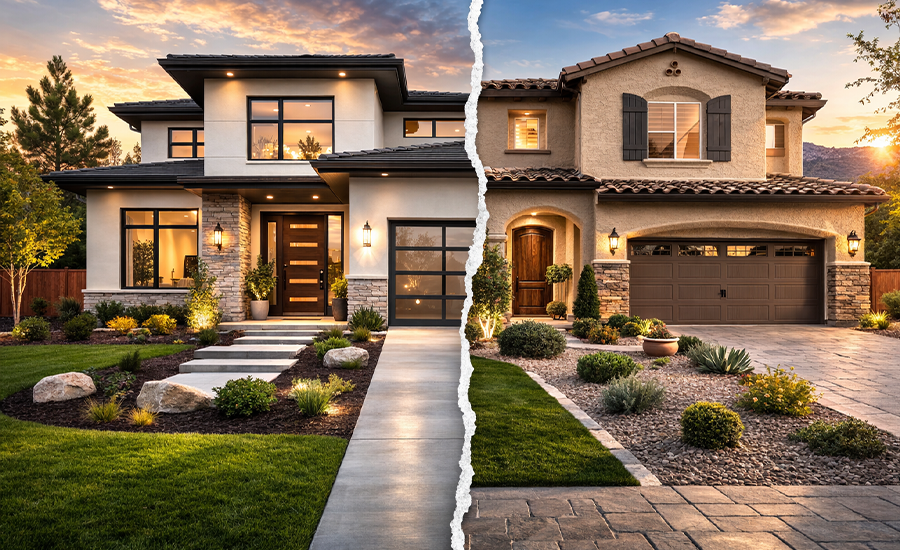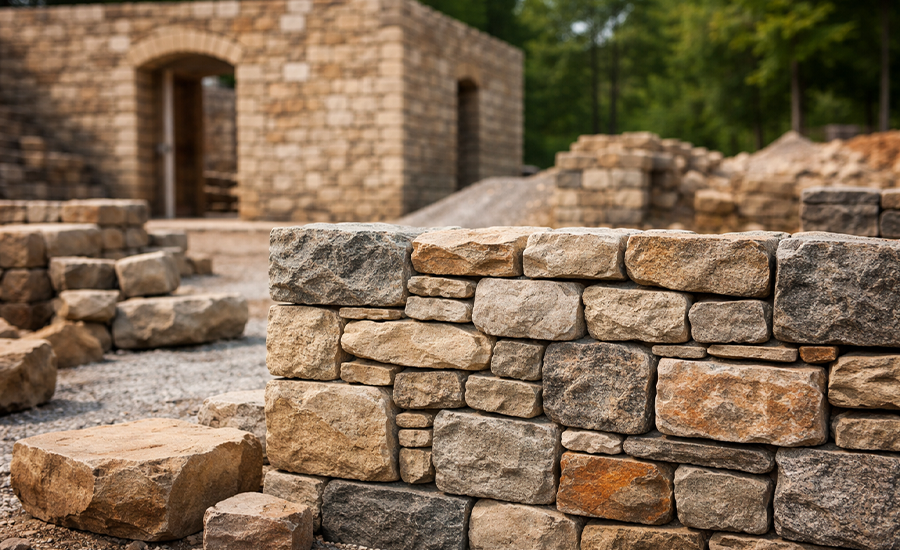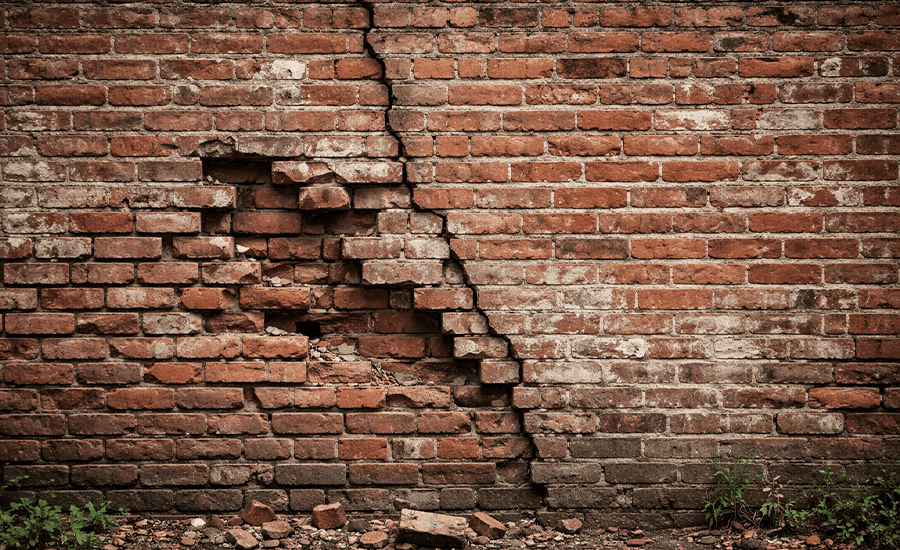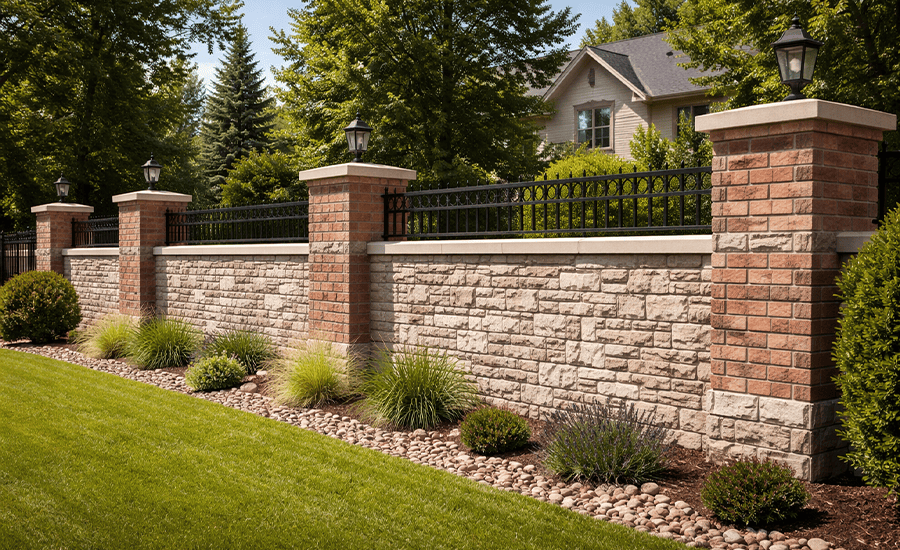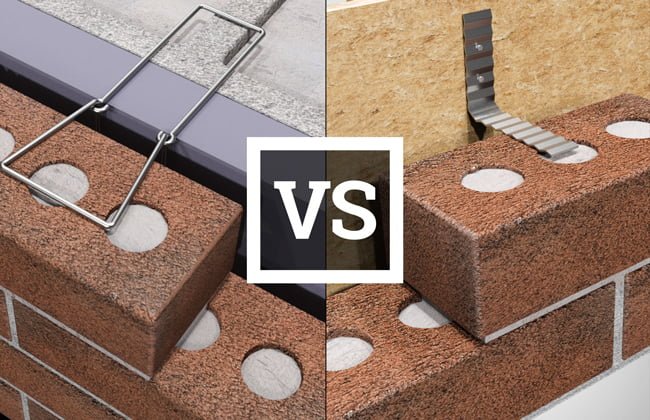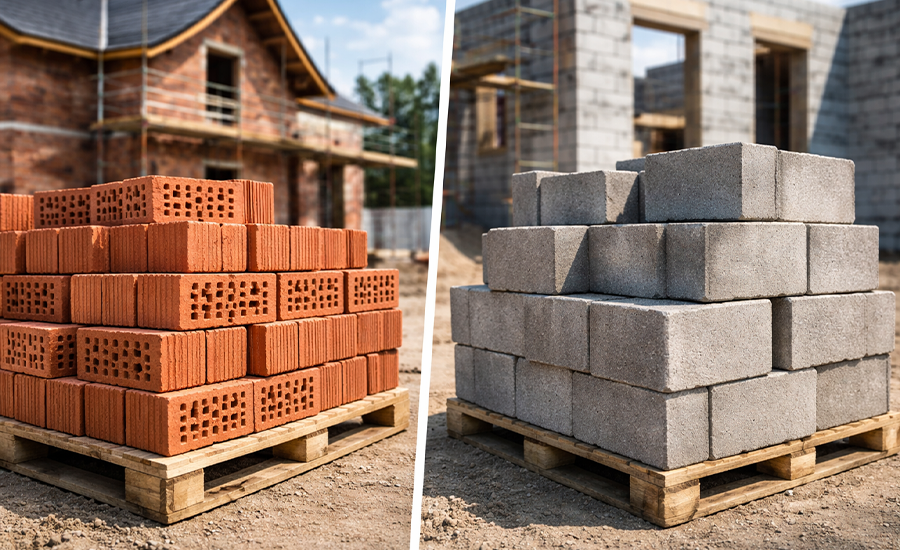Be it historic or modern construction, masonry is the industry-proven and the old construction method to get your residential and commercial properties repaired, restored, and install the new construction units and gain structural strength. In the masonry construction, the only thing that plays a vital role in bridging the gaps between the joints is the mortar that is filled in these voids to protect your property from water damage, pest infestations, and entry of unwanted residue. Masonry joints help strengthen the structure, providing durability, and they also enhance the visual appearance of your brick structures.
In this blog, you’ll receive a detailed guide about the types of masonry joints, their benefits, and how and where they are applicable.
Different Types of Masonry Joints & Styles
Here is the detailed list of the types of masonry joints and styles that are appropriate for your residential and commercial properties.
Rounded Mortar Joint
Overview: It is the joint that makes the curved depression from the rounded tool. It is the most resilient joint.
Benefits:
- It prevents water penetration.
- It stays for the long term & it’s also sustainable.
- It gives the neat & clean finishes.
Suitable Uses: It is used in facades and retaining walls that have direct contact with the environment.
For long-term strength of rounded and concave joints, you may also like our blog on how long should brick pointing last?
V-pointed Mortar Joint
Overview: This joint has sharp & angular lines, made up of a V-shaped tool.
Benefits:
- It gives your masonry a visually pleasing look.
- It offers water-resistant qualities.
Suitable Uses: It is best for reviving the architectural cohesiveness and decorative masonry.
Weathered or Outward Sloping Joint
Overview: This joint is sloped outward with a recessed top.
Benefits:
- It helps in excellent water-shedding.
- It is durable & provides structural integrity.
Suitable Uses: It is used for outside walls where protection from rain is essential.
Flush-pointing Mortar Joint
Overview: This joint is made to create flat & smooth surfaces with a pressed tool.
Benefits:
- It gives clean finishes & a simple look.
- It protects grooves from dust.
Suitable Uses: It is applicable to interior walls that can be plastered or painted.
Angled Joint Finishes
Overview: This makes the joints angular in shape, ensuring the bottom edge is set to flush & extends outward.
Benefits:
- It is best for creating shadows for decoration.
Suitable Uses: It is used in shadowed, sheltered, and interior areas.
Recessed Mortar Joint
Overview: This joint helps in raking out the mortar with a depth of 6-12mm, creating the sunken joints.
Benefits:
- It creates a strong shadow line, giving a rustic look.
- It is common in historic and restoration projects.
Suitable Uses: It is best for aesthetic purposes in old-style brickwork.
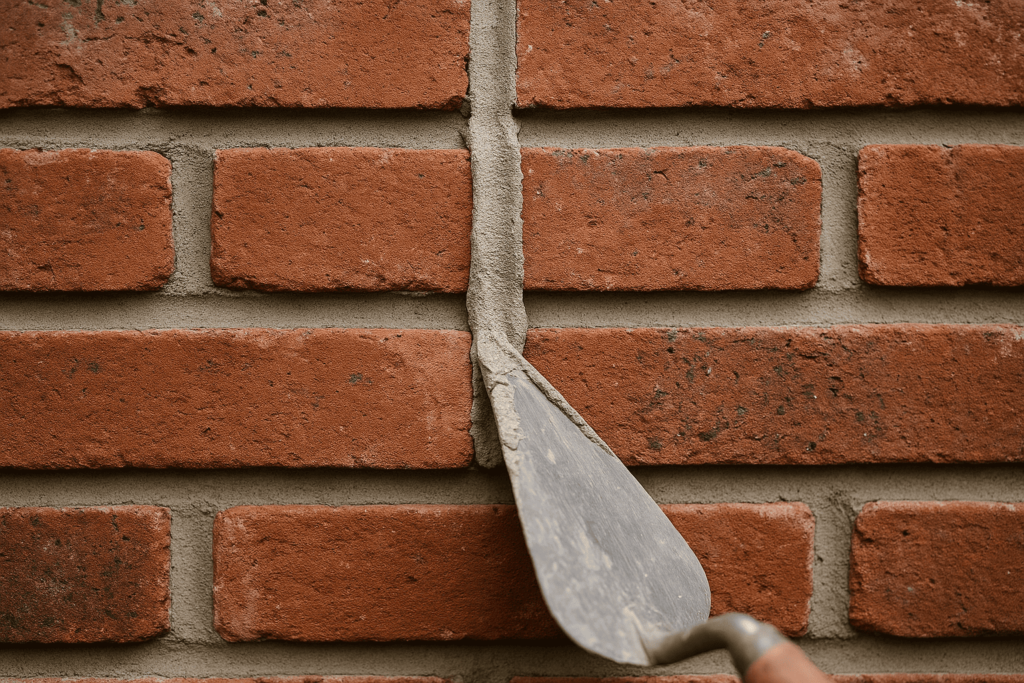
Decorative Beaded Joint
Overview: A rounded bead is formed along the center of the joint, projecting outward.
Benefits:
- It enhances the bold architecture of your masonry.
Suitable Uses: It is used in modern construction to enhance the historic architecture.
Grooved Mortar Joint
Overview: A groove is cut or pressed into the mortar joint with a tool.
Benefits:
- Provides a distinct line and textured appearance.
Suitable Uses: Decorative applications in visible masonry walls.
Tuckpointed Mortar Joint
Overview: A decorative method where mortar is colored to match the brick, and a thin line of contrasting mortar is added for visual effects.
Benefits:
- Enhances the visual appeal of brickwork.
- Creates an illusion of excellent joints.
Suitable Uses: Common in historic buildings and ornamental brickwork.
Matching the Joints According to Project Needs
You should consider the following factors when opting for the mortar types based on your project needs:
- Environmental Conditions: In harsh rainy weather, concave & weathered joints work the best.
- Building Setting: For interiors, struck & flush joints work perfectly.
- Architectural Style: When it comes to adding styles & design to your masonry, tuckpointing & Beaded pointing aligns perfectly.
- Structural Strength: For lasting services & harsh weather conditions, grooved & weathered pointing is applicable.
If you’re unsure which pointing style suits your home best, check out our blog how does brick pointing improve property value?
Conclusion
Concluding this blog, several masonry joints play an effective role in making your home visually appealing and structurally sound, as every masonry joint has different functions and finishes. Just make sure to opt for the right joint, which is suitable for your home and offers durability.
You can also explore our blog why is repointing necessary? to better understand why timely joint repairs matter for durability.
Sardar Restoration Corp. proudly serves every corner of NYC, including the Bronx, Manhattan, Brooklyn, Westchester, and Queens. Our services are designed to meet your needs, providing top-quality solutions wherever you are. Check our service areas to see how we can assist you in your location.
Contact us today at (+1) 917-355-8556 or sardarrestoration@gmail.com, or visit us at 2770 Fish Ave, Bronx, NY 10469, United States.
FAQs
Do you repair damaged masonry joints?
Yes! Sardar Restoration Corp. has the expertise in repairing the damaged masonry joints and other types of deterioration by using the appropriate materials, ensuring the restoration of the strength and stability of your masonry.
Do you offer tuckpointing for historic buildings?
Yes! Sardar Restoration offers expert tuckpointing services for historic buildings to maintain their architectural legacy and revive their traditional beauty.
Do you provide free estimates?
Yes! Sardar Restoration Corp. provides free estimates before work starts. We thoroughly inspect your property and then provide you with honest estimates that fit your budget.
Can you handle both residential and commercial projects?
Yes! Sardar Restoration Corp. Meticulously handles the residential and commercial projects for masonry restorations and enhancements.
Which masonry joint is best for exterior walls?
For exterior walls exposed to rain, concave (rounded) and weathered joints are considered the most effective because they shed water and offer long-term durability.
What type of mortar joint is strongest?
The concave or rounded mortar joint is generally the strongest since it compresses the mortar tightly and prevents water penetration, making it durable in all weather conditions.
Which joints are most common in modern construction?
Flush, recessed, and V-pointed joints are widely used in modern residential and commercial projects for their clean look and water-resistant properties.
